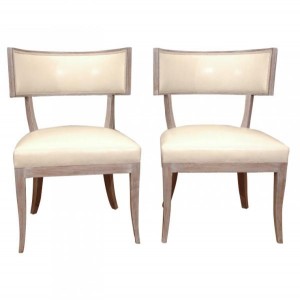 When tenor Luciano Pavarotti was a boy, his father, a baker, introduced him to the wonders of song. He urged him to work very hard to develop his voice. Arrigo Pola, a professional tenor in Pavarotti’s hometown of Modena, Italy, took him as a pupil. He also enrolled in a teachers’ college. On graduating, Pavarotti asked his father, “Shall I be a teacher or a singer?” “Luciano”, his father replied, “if you try to sit on two chairs, you will fall between them. For life, you must choose one chair.”
When tenor Luciano Pavarotti was a boy, his father, a baker, introduced him to the wonders of song. He urged him to work very hard to develop his voice. Arrigo Pola, a professional tenor in Pavarotti’s hometown of Modena, Italy, took him as a pupil. He also enrolled in a teachers’ college. On graduating, Pavarotti asked his father, “Shall I be a teacher or a singer?” “Luciano”, his father replied, “if you try to sit on two chairs, you will fall between them. For life, you must choose one chair.”
Life is full of choices. Every day we are invited to choose. We choose what we are going to eat, what we are going to wear, how we are going to act, what we are going to do, and where we are going to go.
In this morning’s Gospel (Luke 7:36-50), we also have a choice. We choose who we are like in this story, the Pharisee or the woman. It is our choice. First let’s look at the Pharisee.
It is not clear why Simon asked Jesus to go for a meal in his house. Perhaps it was because Jesus was popular and it would help Simon’s own prestige to be seen with such a person. Maybe it was curiosity and he wanted to find out a bit more about this unusual man who was reported to be performing miracles and preaching profound sermons. What is clear is that he had no warmth towards Jesus. He did not feel obliged to give to Jesus the common courtesies expected of a host, such as arranging for the washing of his feet and the anointing of his head with oil. And he was sitting as the judge of Jesus because he quickly came to wrong conclusions about whether or not he was a prophet because of his response to the woman.
Now, let’s look at the woman. The first detail that stands out in the woman’s attitude is that she wanted to be with Jesus. If that meant going into a situation in which she had not been before, then she would do so because Jesus was there. So we can see that her love for Jesus made her courageous and willing to do something unusual. Looking at the woman in the story, it is clear that she was a great sinner, and owed a debt for her sin that she could not pay.
There are other people, like this Simon, who especially in front of others, do not appear to be very big sinners at all. They appear to be good, moral people. Their sins are not as great or as obvious. But before God, whether a person is a moral sinner, or an immoral sinner, he or she is a sinner who owes a debt for their sin to God. Jesus already paid the debt for our sin. All we have to do is apply it to our account!
What gave this woman in our story her forgiveness? Was it the tears? Was it the foot washing? Was it the expensive perfume? NO! IT WAS HER FAITH! It is not our actions that save us. It is our faith that saves us. Our actions are a reflection of our faith. Our actions show that we have faith!
The difference between the Simon the Pharisee and this woman was: she knew she was a sinner who needed a Savior. Simon did not consider himself a bad enough sinner to need a Savior! He was wrong!
This woman not only acknowledged her sin, but she showed her affection for Jesus. She loved Him for what He had done for her! The kisses were the sign of her affection.
How do your loved ones know you love them? You tell them. You thank them for the things they do for you. You are loyal to them. You are there when needed. You will do whatever you can to help!
How does Jesus know that we love Him? Do we tell Him that we love Him? Do we thank Him for all that He’s done? Do we spend time with Him in prayer? Do we speak up for Him? Will we do anything that He asks?
It’s time for us to choose one chair! Are we like the Pharisee who shows no acknowledgement of sin, shows no affection or appreciation for Jesus? Or are we like this woman who acknowledges sin, shows affection, and shows appreciation.
The choice is ours to make.




